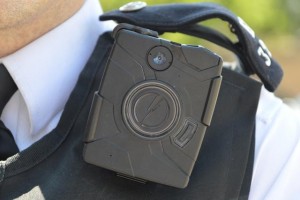 In recent months there has been a lot of attention in the media with regards to equipping more police officers with body cameras. According to the latest information, the use of body cameras has led to a decline in the number of incidents of “excessive use of force” by police officers. At the same time, footage that has been captured by body cameras has proven to be extremely useful in helping those who are investigating claims of police brutality and misconduct.
In recent months there has been a lot of attention in the media with regards to equipping more police officers with body cameras. According to the latest information, the use of body cameras has led to a decline in the number of incidents of “excessive use of force” by police officers. At the same time, footage that has been captured by body cameras has proven to be extremely useful in helping those who are investigating claims of police brutality and misconduct.
Sadly, despite the obvious fact that police body cameras have a number of benefits, there are definite concerns regarding the possibility that these same cameras pose a risk to the privacy of both the police officers and members of the general public. The general feeling is that these concerns need to be addressed as the use of body cameras becomes more widespread.
A Matter of Public Record
Records indicate that members of the public have expressed the most concern with regard to their privacy being violated when they have been filmed by a police officer. Should the footage be deemed a matter of public record, then countless hours of footage that covers the interactions between “innocent” members of the public could easily become available to anyone requesting the footage.
A good example of where this might be a problem is if an officer enters private citizen’s home yet makes no arrest. He then leaves without making an arrest, carrying with him footage of the entire encounter that includes potentially embarrassing video should the footage find its way into the media or anyone else’s hands.
On or Off
While many police departments around the country are currently working to develop their own rules and regulations regarding the use of body cameras and whether or not the footage is to be considered public domain, the biggest question seems to be how best to protect the privacy of both the officer and any members of the general public who might be recorded. Today’s body cameras have batteries with a 12-hour lifespan, meaning an officer could potentially turn the camera on at the start of their shift and not turn it off until the end of their shift.
But, if the camera is on for their entire shift, the possibility of potentially embarrassing recording of private citizens increases exponentially. Yet at the same time, our police officers deserve to be protected from the threat of excessive force allegations. It seems as though the general public is demanding higher and higher levels of transparency with regard to law enforcement officers, yet they are not willing to accept the fact there is always going to be the risk of embarrassment from the captured footage body cameras provide.
However, the public also needs to realize that there are times when an officer needs to protect their own privacy such as when they are talking to each other about personal issues or police matters that the public has no need to know about. At the same time, officers should have the ability to turn the camera off when they are talking to minor victims, victims of sexual assault, and informants who would not be as likely to come forward if they knew they were being recorded.
In time it will be up to each police department to develop rules regarding the use of body cameras that take into account the need for privacy for both police officers and members of the general public. While these cameras have already proven to be a very useful tool, privacy is a major issue when they are in use and must be taken into consideration.
